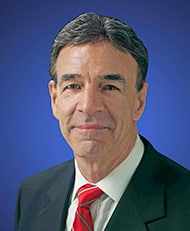
Preoccupation with political correctness has reached the point where one has to question whether it’s possible to be politically correct by being politically correct.
Over-sensitivity to terminology has delivered us to the point that virtually any statement may well be deemed to be offensive by someone, thereby making virtually any term or phrase politically incorrect. As such, under the magnifying glass of political correctness, even remaining silent can be classified as being politically incorrect; failing to respond to a politically incorrect statement qualifies as being politically incorrect.
One definition of “politically correct” is “agreeing with the idea that people should be careful to not use language or behave in a way that could offend a particular group of people”. Another is that political correctness is, “tyranny with a happy face”. While the original intent might have been consistent with the former definition, current practice is more aligned with the latter.
I have long wondered about the identity of the self-proclaimed all-knowing people who define what is or isn’t politically correct. Who is it that determined that “physically challenged” is less offensive than “handicapped”? Or that “hearing impaired” is less offensive than “deaf”? Who is it that determined “spring spheres” should be used in place of “Easter Eggs”, or that “Holiday tree” was “more correct” than “Christmas tree”?
Personally, I consider the term “challenged” to be more offensive than “handicapped”. Being challenged seems to indicate more of an emotional issue than a physical one, implying a person won’t, rather than can’t, do something. I’ve known a number of people with physical limitations who don’t consider themselves “challenged” at all. They accept that due to a specific circumstance they cannot do some things easily, or at all, in much the same manner that most people accept their inability to perform the feats of elite athletes.
Would these same people (with disabilities) prefer the term “challenged” over “handicapped”? That’s impossible to say because each person may have a different opinion. In the end, it becomes a matter of semantics and individual interpretation. One thing is certain—one person cannot, without being offensive, presume to define another’s linguistic preference.
Without question, attempts to use non-offensive language are commendable. However, there are limits to the practicality, and therefore the success of such efforts. Much has to do with the intent with which a comment is made, or a statement is written. But in the rush to be “politically correct”, intent is ignored in preference to finger pointing.
Given the unique perspective of each person, it seems obvious that regardless of terminology, someone is going to be offended. As such, a term that is politically correct to one person is offensive to another. By seeking to offend no one, we can only succeed in offending someone. The quest for political correctness only changes the people who are offended, it doesn’t eliminate offensiveness. In fact, it isn’t terminology, as much as the manner in which words are used, that is truly offensive.
Dave Emanuel is Vice President of Random Technologies, a manufacturing company in Loganville, and a Snellville City Councilman. To read more from Dave Emanuel visit http://www.cuttothe-chase.net

